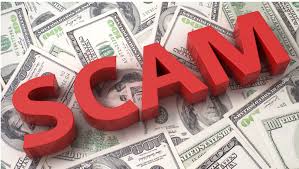Local News
Financial Literacy Awareness Month: Debt Relief Scams

Nobody wants to be in debt, so opportunities for debt relief can be very tempting to consumers. Offers to help you reduce or wipe out your debt might sound like a perfect solution, but dishonest debt relief companies will take your money and do little or nothing to help. So how do you get real help and skip the scammers?
Know how to identify debt relief scams.
· Never pay anyone who tries to collect fees upfront. That’s illegal.
· Don’t share your financial or personal information with someone who calls unexpectedly, offering to help you settle your debts. That’s probably a scammer.
· Avoid anyone who guarantees you results from a “new government program” for a fee, or tries to enroll you without first reviewing your financial situation.
Whether for credit cards, student loans, or another form of debt, scammers might appear to be legitimate companies offering real services. Unfortunately, they collect hundreds of thousands of dollars in upfront fees and lie about the results they deliver. Some operators even claim they will take over a consumer’s loan servicing, and trick victims into sending their monthly payments directly to the scammers.
How can you get real help?
If you’re already behind on your bills, don’t wait. Call your creditors or servicers and explain your situation before a debt collector gets involved. Try to work out a payment plan with lower, more manageable payments.
You may consider working with a credit counseling program to help you manage your money and debt. Look for these services at credit unions, universities, military personal financial managers, and U.S. Cooperative Extension Service branches. Many of these organizations offer services with low fees, but always ask how much you’ll be charged.
To learn more visit:


